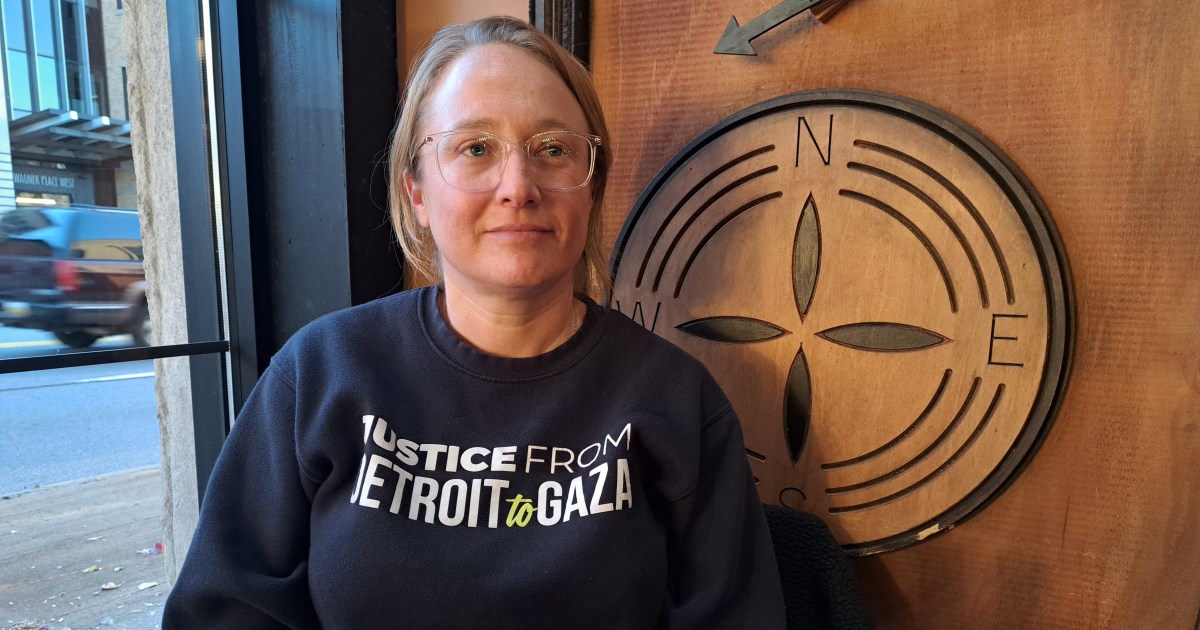Where Do We Go Once the Israel-Hamas War Ends?
NEW YORK, Nov 06 (IPS) – Since the 1967 Six Day War, many efforts have been made to reach a peace agreement between Israel and the Palestinians through mediation conducted by an impartial mediator, face-to face negotiations, international conferences, offering incentives, back-channel talks, interim agreements (in particular the Oslo Accords), and occasionally by an influential party exerting pressure on both sides, especially the US.
None of the above approaches nor several others to reach a peace agreement have worked. The failures to reach an agreement are fundamentally attributed to the fact that both sides claim exclusive ownership to the entire land from the Mediterranean to the Jordan River, albeit they blame each other for failing to make the necessary concessions to reach a peace agreement.
While the prospect of a two-state solution was viable following the 1993 Oslo Accords, the outlook for such a solution became progressively dimmer as Israel moved to the right-of-center. Prime Minister Netanyahu, who was bent on sabotaging the Oslo Accords when he served as prime minister between 1996 and 1999, and has been in power for most of the past 15 years, made it clear repeatedly that there will be no Palestinian state under his watch.
The idea of a two-state solution was steadily losing traction in Israel, the occupation of the West Bank was normalized, and a de facto apartheid state was created, which became a way of life for most Israelis and Palestinians.
The changing dynamic of the conflict
It is well known in conflict resolution that sometimes it takes a major breakdown that precipitates an extraordinary crisis to change the dynamic of a conflict. The shockingly unexpected and devastating Yom Kippur War in 1973, which subsequently led to a peace agreement between Egypt and Israel, offers a potent example.
As such, it made it simply impossible to return to the status quo ante. Indeed, neither Israel nor the Palestinians, including Hamas, will be the same following this most heinous and unprecedented massacre and Israel’s retaliation that has already exacted (as of this writing) more than 8,700 Palestinian casualties—not to speak of the unimaginable death and destruction that will occur as Israel undertakes its ground invasion of Gaza.
This unfolding horror should have been expected because of what was happening on the ground in the West Bank and Gaza over the past few years, especially in the last 10 months since the formation of the most extremist right-wing coalition government in Israel’s history (as I pointed out in my article published on October 3, 2022). Indeed, it did not take a prophet to augur what would happen next.
The increasingly violent flareups in the West Bank have been claiming hundreds of Palestinian lives, mostly under the age of 30, each year (so far this year over 300 West Bank Palestinians have already been killed, as of the time of writing, over 100 since October 7 alone). The frequent night raids, evictions, incarcerations, demolition of houses, and gross human rights abuses became the norm.
Despair, depression, and hopelessness swept much of the Palestinian population, akin to the gathering of a ferocious storm that successive Israeli governments led by Netanyahu chose to brush off. Moreover, it is the psychological dimension of the conflict that has now come into full display, exposing decades-old mental and emotional trauma the Palestinians have been experiencing to which the wright-wing Israelis were oblivious and which was bound to manifest in an unprecedented way.
The Palestinians’ resentment and hatred of Israel were intensifying. Since the new government could not formally annex Palestinians territories, it has resorted to intimidation and harassment of the Palestinians under the watchful eye of the criminal Minister of National Security Itamar Ben-Gvir, who gave the settlers free reign to rampage Palestinian communities in order to ‘encourage’ them to leave.
The Netanyahu government’s intent to slowly annex much of the West Bank became abundantly clear. Needless to say, none of the above can justify under any circumstances Hamas’ heinous attack on Israeli civilians. Hamas must pay for it dearly, and pay they will.
But such unthinkable carnage happened because of the perilous “strategy” that successive Israeli governments pursued that enabled Hamas and prevented the establishment of an independent Palestinian state. This also explains why Netanyahu consistently refused to negotiate with any prospective unity government between the PA and Hamas.
The creation of Hamas
Israel created Hamas to counter balance the secular national Palestine Liberation Organization (PLO) movement led by Yasser Arafat, which was intended to divide the Palestinians into two camps and prevent the creation of a Palestinian state. The creation of Hamas by Israel, which has been confirmed by many top Israeli military and civilian officials over a number of years, is unquestionable.
Former Brig. Gen. Yitzhak Segev, who was the Israeli military governor in Gaza in the early 1980s, told a New York Times reporter that he had helped finance Hamas as a “counterweight” to the secularists and leftists of the Palestine Liberation Organization (PLO) and the Fatah party, led by Yasser Arafat, stating “The Israeli Government gave me a budget and the military government gives to the mosques.” And among many others, Avner Cohen, a former Israeli religious affairs official who worked in Gaza for more than two decades, told the Wall Street Journal in 2009 that “Hamas, to my great regret, is Israel’s creation.”
In a 2015 interview, Bezalel Smotrich, the current finance minister who is also in charge of Coordination of Government Activities in the Territories (COGAT), stated “The Palestinian Authority is a burden, and Hamas is an asset” . And in an article published in the New York Times on October 18, 2023, entitled “Netanyahu Led Us to Catastrophe. He Must Go.,” author Gershom Gorenberg stated that “Bringing Gaza back under the Palestinian Authority was apparently never part of the prime minister’s agenda. Hamas was the enemy and, in a bizarre twist, an ally against the threat of diplomacy, a two-state solution and peace.”
Indeed, no Israeli prime minister has pursued this disastrous policy of divide and conquer more vigorously than Netanyahu. Although he maintained the blockade over Gaza, he allowed the flow of hundreds of millions of dollars from Qatar and other countries into Hamas’ coffers, knowing full well that more than 50 percent of these funds were used by Hamas to buy and manufacture weapons, including tens of thousands of rockets, and build a massive network of tunnels with command and control while readying itself for the next war.
Gorenberg further stated that “In 2019, for instance, Netanyahu explained why he allowed the Hamas regime in Gaza to be propped up with cash from Qatar rather than have it depend on a financial umbilical cord to the West Bank. He told Likud lawmakers that ’whoever is against a Palestinian state should be for’ the Qatari funding…” Yuval Diskin, head of Shin Bet from 2005-2011, stated in January 2013 that “If we look at it over the years, one of the main people contributing to Hamas’s strengthening has been Bibi Netanyahu, since his first term as prime minister.”
And in a more telling statement from someone who has been deeply immersed in Israeli politics and governance, Ehud Barak stated in August 2019, “His strategy is to keep Hamas alive and kicking… even at the price of abandoning the citizens … in order to weaken the PA in Ramallah…”
Netanyahu’s ill-fated “strategy” was an illusion. He believed that he could control the monster that he nurtured over the years, which instead came back to slaughter hundreds of innocent Israelis who have been relying on their government for protection and were tragically let down.
They have been betrayed by a prime minister who has been fixated on bolstering Israel’s security in the West Bank while weakening the security of the southern front along the Gaza border. And while Netanyahu was sparing no efforts to ‘reform’ the judiciary, Hamas was planning, training, acquiring weapons, and perfecting the technique to wage an assault against Israel more daring than anyone could have possibly imagined.
It all happened under Netanyahu’s watch. And worse yet, how is it possible that the world’s most renowned intelligence agency, Israel’s Mossad, failed to detect the planning of an attack of such magnitude that it took perhaps more than a year to prepare? And why did Netanyahu ignore the warning of Egypt’s Intelligence Minister General Abbas Kamel, who personally called Netanyahu and warned him that Hamas was likely to do “something unusual, a terrible operation” only 10 days before the attack?
I do not suggest or even imply that Netanyahu knew what was going to happen but chose to ignore it, but rather that he was simply dismissive of what Hamas is capable of and believed that he had a good handle on what was happening in Gaza. He was preoccupied with passing legislation that would subordinate the Supreme Court and the appointment of judges to elected politicians, which would have destroyed Israel’s democracy and allowed him to assume authoritarian powers, to which he badly aspired.
Although the Palestinians on the whole, be they in the West Bank or Gaza, are innocent civilians, the extremists among them have committed many egregious acts of violence against Israel. The Palestinian leaders missed many opportunities to make peace, and made countless mistakes that aggravated their own situation.
Moreover, by threatening Israel’s very existence, extremist groups such as Hamas and Islamic Jihad allowed successive Israeli governments to make a strong case against the Palestinians by portraying them as an irredeemable mortal enemy that poses the greatest danger to Israel’s national security and hence, the Palestinians cannot be a party to peace.
With these perspectives established by the Israeli government, maintaining the occupation became the state policy, however unsustainable it has been deemed by any keen and informed observer.
What’s next
That said, once the war is over and the dust settles, a growing majority on both sides will come to recognize one irreversible fact. Co-existence is not one of many options, it is the only option, be that under conditions of peace or perpetual violent enmity. The two-state solution has come back to the table, as it has always been the only viable option. Both sides must now face this bittersweet reality.
The question is what will happen now that Israel and Hamas are engaged in fierce fighting on the ground that will surely exact an immense toll on both sides. I maintain that whether Israel limits its ground invasion of Gaza to its northern part, or continues its targeted bombing of Hamas’s encampments while seeking to decapitate as many of its leaders as possible, or simply stops the fighting, which is unlikely, and focuses on releasing the over 240 hostages, nothing will change in any substantial way the irreversible new paradigm that has bitterly awakened both sides to their miserable, unsustainable status quo.
To be sure, what option the Israeli government will choose to bring an end to the conflict will only define the length of time that that might take, the extent of difficulties in the negotiation, the modalities of the negotiating process, the level of public and international pressure to find a solution, and the likely intermittent violence. But none of these issues will change the fundamental point of departure that point to the endgame of a two-state solution, regardless of how many more hurdles might be encountered.
Dr. Alon Ben-Meir is a professor of international relations at the Center for Global Affairs at New York University (NYU). He teaches courses on international negotiation and Middle Eastern studies.
IPS UN Bureau
Follow @IPSNewsUNBureau
Follow IPS News UN Bureau on Instagram
© Inter Press Service (2023) — All Rights ReservedOriginal source: Inter Press Service
Check out our Latest News and Follow us at Facebook
Original Source





